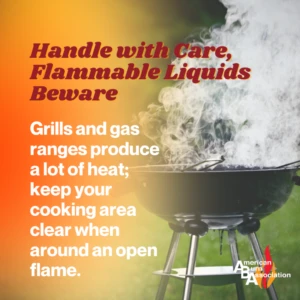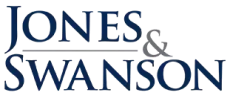The first full week of February is the American Burn Association’s National Burn Awareness Week. This week it is important to learn about detrimental safety tips that could help prevent you and your loved ones from the dangers of fires and burns.
It is important to know that 47% of all home fires are caused by cooking (ABA); this is the number one cause of home fires overall. Because of this, it is important to educate yourself on safety. Luckily, there are multiple ways to have primary and secondary prevention methods.

primary Prevention
- The best time to cook is when you are wide awake and not intoxicated or under any influence.
- Use clean surfaces (absent of grease) and keep kitchen clutter away from open flames.
- Wear short sleeves or roll them up while cooking to prevent them from getting too close to a flame or hot surface.
- Keep potholders, oven mitts, and pot lids close by at all times.
- Turn handles on pans or pots away from walkways to prevent them from being knocked off the counter.
- Use microwave-safe dishes and utensils in microwaves, never place metals or other unsafe materials inside.
- Do not place hot glass on cold countertops, and do not place hot liquids into cold glasses. This will prevent them from shattering.
- Allow food to rest after being microwaved or cooked.
- When frying use a lid or splash guard to prevent grease splatter.
- Never leave the kitchen while you are frying, broiling, or grilling. Turn off open, high-heat flames before you leave.
- Always check that burners and stoves are off when you finish cooking.
Secondary Prevention, When Food Fires Occur
- Cover your pan with its lid. Metal sheets work as well. Leave your food covered until it has cooled down. Do not take outside or move the pot.
- Turn off your heat. Never use water to put out a cooking fire.
- If the fire is inside the oven or microwave keep the door shut and turn it off until it cools.
- If the fire is too large to handle, get out, and call 911, do not go inside for any reason.
Another common fire hazard among Americans is gasoline. Whether it is filling up our cars every other day or using traditional lawn equipment, it is important to note that safety shouldn’t be ignored here either.
Do:
- Store gasoline in cool, ventilated areas.
- Use gasoline outdoors only.
- Store gasoline away from children, in secure locations.
- Use gasoline-safe labeled containers.
- Fill equipment with gas when engines are cool.
- Only use charcoal starter fluid on charcoal grills.
Don’t:
- Siphon gasoline with your mouth or attempt swallowing it.
- Use gasoline near open flames.
- Use gasoline as a cleaner or solvent.
- Store gasoline in your home.
- Fill gasoline into a container while it is inside a vehicle or truck.
- Start your car while filling it with gasoline.
Jones & Swanson wants to extend our ultimate support to the expansion of safety and education surrounding the American Burn Association. We hope that every reader shares this important information with their loved ones and continues to use these practices forever to prevent catastrophic injury!
Jones & Swanson Is A Personal Injury Law Firm, If You Have Questions About Your Situation Or If You Or Someone You Know Has Been Burned Due To The Negligence Of Others, Seek Immediate Medical Assistance, Then Give Us A Call At (770) 427-5498 Or contact Us On Awjlaw.com for A Free Consultation To Find Out The Next Steps You May Want To Take.
Categories: FAQ, Safety Tips






